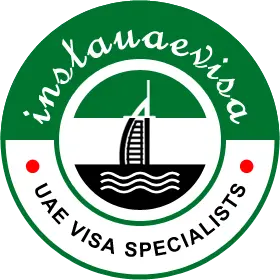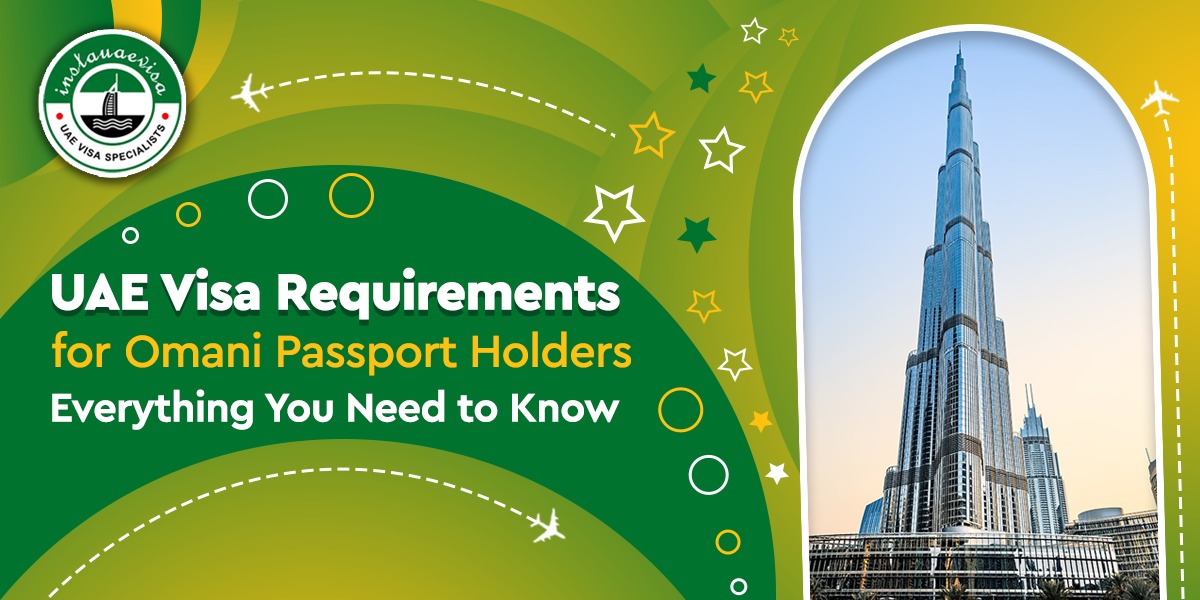Introduction: Special Relationship Between Oman and the UAE
The United Arab Emirates and the Sultanate of Oman share more than just borders; they share a rich history of cultural ties, economic cooperation, and diplomatic relations. This special relationship extends to travel privileges, making movement between these Gulf Cooperation Council (GCC) nations remarkably straightforward for their citizens.
For Omani passport holders planning to visit the UAE, understanding the current visa regulations is essential for a smooth journey. Whether you're traveling for tourism, business, medical treatment, or family visits, this comprehensive guide will walk you through everything you need to know about UAE visa requirements with an Omani passport in 2025.
Do Omani Citizens Need a Visa to Enter the UAE?
The short answer is no. As citizens of a GCC member state, Omani nationals enjoy visa-free entry into the United Arab Emirates. This privilege stems from the GCC unified travel policies established to strengthen regional integration and facilitate seamless movement between member states.
This visa exemption is one of the key benefits of the strong bilateral relations between Oman and the UAE, reflecting the deep ties between these neighboring Gulf countries.
Entry Process for Omani Passport Holders
Documentation Requirements
Despite the visa exemption, Omani travelers must still carry proper documentation when entering the UAE:
- Valid Omani passport - Your passport must be valid for at least six months from your date of entry into the UAE.
- National ID card - Your Omani national identity card serves as an additional verification document.
- Return ticket - While not always strictly enforced, having proof of onward travel is recommended.
- Accommodation details - Information about where you'll be staying during your visit.
Entry Points and Procedures
Omani citizens can enter the UAE through any of the following entry points:
- International airports: Abu Dhabi International Airport, Dubai International Airport, Sharjah International Airport, and other UAE international airports.
- Land borders: The UAE-Oman border crossings, including Al Wajajah, Khatmat Milaha, and Hafeet.
- Seaports: Various seaports across the UAE for those arriving by sea.
Upon arrival, Omani passport holders proceed directly to immigration counters designated for GCC nationals. The immigration officer will:
- Verify your Omani passport and ID card
- Take your biometric data (fingerprints and photograph)
- Stamp your passport with an entry stamp
- Register your entry in the UAE's electronic system
This streamlined process typically takes just a few minutes, significantly faster than the entry procedures for non-GCC nationals.
Duration of Stay for Omani Citizens
Omani passport holders can stay in the UAE for:
- Up to 90 days per visit with the possibility of extension
- Unlimited entries and exits within this period
- No minimum time requirement between exits and re-entries
If you need to stay beyond the initial 90-day period, you have several options:
- Exit and re-enter: You can leave the UAE (even for a day) and return to receive a new entry stamp.
- Extension application: Visit the nearest General Directorate of Residency and Foreigners Affairs (GDRFA) office to apply for an extension.
Special Considerations for Different Types of Visits
Tourism and Leisure
For Omani nationals visiting the UAE for tourism, the standard entry privileges apply. You can explore all seven emirates, enjoy tourist attractions, and participate in recreational activities without additional permits.
Popular tourist destinations for Omani visitors include:
- Dubai's iconic landmarks like Burj Khalifa and Palm Jumeirah
- Abu Dhabi's cultural sites such as the Sheikh Zayed Grand Mosque and Louvre Abu Dhabi
- Shopping festivals and entertainment events throughout the year
- Desert safaris and adventure activities
- Beach resorts and luxury accommodations
Business Visits
Omani business travelers can conduct business activities in the UAE using their regular entry privileges. This includes:
- Attending business meetings and conferences
- Exploring potential business opportunities
- Meeting with UAE-based partners and clients
- Participating in trade shows and exhibitions
For business activities that extend beyond simple meetings (like signing contracts or establishing a business presence), additional permits may be required from relevant UAE authorities.
Medical Tourism
The UAE, particularly Dubai and Abu Dhabi, has become a significant medical tourism destination for Omani citizens seeking specialized treatments. When traveling for medical purposes:
- Bring documentation from your referring doctor in Oman (if applicable)
- Carry appointment confirmations from UAE medical facilities
- Ensure you have sufficient health insurance coverage
Many UAE hospitals have dedicated international patient departments that can assist Omani patients with the necessary arrangements.
Educational Visits
Omani students wishing to study in UAE educational institutions benefit from the visa-free entry but may need to obtain a student residence visa for longer academic programs. This typically requires:
- Acceptance letter from a UAE-accredited educational institution
- Medical fitness certificate
- Proof of adequate financial resources
The educational institution usually assists with the residence visa application process once you've been accepted into a program.
Using the Omani National ID Card for Entry
One of the most convenient aspects of travel between Oman and the UAE is the ability to use the Omani national ID card as a travel document. This means:
- No passport required for entry via land borders
- Simplified entry process using e-gates at major entry points
- Faster immigration clearance using designated GCC national lanes
To use e-gates with your Omani ID, you typically need to register in the UAE's system during your first visit. This registration allows the system to recognize your ID for future automated entries.
Travel Restrictions and Special Cases
COVID-19 Related Requirements
While most COVID-19 related travel restrictions have been lifted, it's always advisable to check the latest health requirements before traveling. As of early 2025, there are minimal health-related entry requirements, but this can change based on global health situations.
Entry Denials and Restrictions
Despite the visa exemption, entry to the UAE remains at the discretion of immigration authorities. Potential reasons for entry denial might include:
- Criminal records or security concerns
- Previous violations of UAE residency or labor laws
- Incomplete or inconsistent travel documentation
- Public health concerns
Special Cases: Employment Seeking
If you're an Omani citizen looking to work in the UAE, the initial entry process remains the same (visa-free). However, once you secure employment, you'll need to:
- Obtain a work permit from the UAE Ministry of Human Resources and Emiratisation
- Complete medical examinations
- Apply for a residence visa sponsored by your employer
- Register with relevant authorities
Benefits of GCC Citizenship for Omani Travelers
As a GCC citizen, Omani passport holders enjoy several additional privileges when traveling to the UAE:
Property Ownership
Omani nationals can purchase property in designated areas within the UAE without the need for special permits that non-GCC foreigners require.
Business Establishment
GCC citizens, including Omanis, have streamlined procedures for establishing businesses in the UAE with higher ownership percentages permitted in certain sectors compared to non-GCC foreigners.
Employment Opportunities
Omani citizens enjoy certain preferences in employment within the UAE government sector and easier procedures for private sector employment compared to non-GCC nationals.
Educational Benefits
Omani students can access UAE public universities with fee structures similar to those applied to UAE nationals in many cases.
Healthcare Access
GCC nationals, including Omanis, can access emergency healthcare services in public hospitals throughout the UAE.
Travel Tips for Omani Citizens Visiting the UAE
Best Times to Visit
The UAE experiences extreme heat during summer months (June-September), with temperatures frequently exceeding 40°C (104°F). Consider visiting during the winter months (November-March) when the weather is pleasant for outdoor activities.
Cultural Similarities and Differences
While Omani and Emirati cultures share many similarities, there are subtle differences in customs and traditions. Both countries observe Islamic principles, but the UAE (especially Dubai) tends to be more cosmopolitan and liberal in certain aspects.
Transportation Between Oman and UAE
Several transportation options connect Oman and the UAE:
- Flights: Multiple daily flights operate between Muscat and major UAE cities, with flight times ranging from 45 minutes to 1 hour.
- Bus services: Regular bus services connect major Omani cities with Dubai, Abu Dhabi, and other UAE destinations.
- Private vehicles: Many Omanis prefer driving across the border, a journey that takes approximately 4-5 hours from Muscat to Dubai.
Banking and Currency
Both countries have their own currencies (Omani Rial and UAE Dirham), but banking integration allows for easy financial transactions:
- ATMs throughout the UAE accept Omani bank cards
- Many establishments in border regions accept both currencies
- Mobile banking apps work seamlessly across both countries
Frequently Asked Questions
Can Omani residents (non-Omani passport holders) enter the UAE visa-free?
No, the visa exemption applies only to Omani citizens. Non-Omani residents of Oman must apply for appropriate UAE visas based on their nationality.
Can I use my expired Omani passport with a valid ID card to enter the UAE?
No, your passport should be valid for at least six months beyond your intended stay. The ID card alone is sufficient only for land border crossings.
Do Omani children need separate documents to enter the UAE?
Yes, Omani children need either their own passport or to be included in a parent's passport, plus their own national ID card if they're old enough to have one.
Can I drive my Omani-registered vehicle in the UAE?
Yes, Omani vehicles can be driven in the UAE. Ensure you have:
- Valid Omani vehicle registration
- Valid insurance with UAE coverage
- International driving permit or GCC driving license
What happens if I overstay my 90-day period in the UAE?
Overstaying can result in fines and potential complications for future visits. If you need to stay longer, either exit and re-enter or apply for an extension before your authorized stay expires.
Conclusion: Enjoying Seamless Travel Between Friendly Nations
The visa-free travel arrangement between Oman and the UAE exemplifies the strong bonds between these neighboring Gulf nations. For Omani passport holders, this means enjoying hassle-free entry and extended stays in the UAE for tourism, business, medical treatment, or family visits.
As you plan your next trip to the UAE, take advantage of these privileges while respecting local laws and customs. The shared cultural heritage and mutual respect between Omanis and Emiratis create a welcoming environment that makes Omani visitors feel at home throughout the seven emirates.
Remember to carry your valid Omani passport and national ID card, stay informed about any changes to travel requirements, and enjoy the warm hospitality that characterizes both these proud Gulf nations.
Whether you're shopping in Dubai, exploring Abu Dhabi's cultural treasures, enjoying Sharjah's museums, or relaxing on Fujairah's beaches, your Omani passport offers you the freedom to experience all the UAE has to offer with minimal bureaucratic hurdles.




